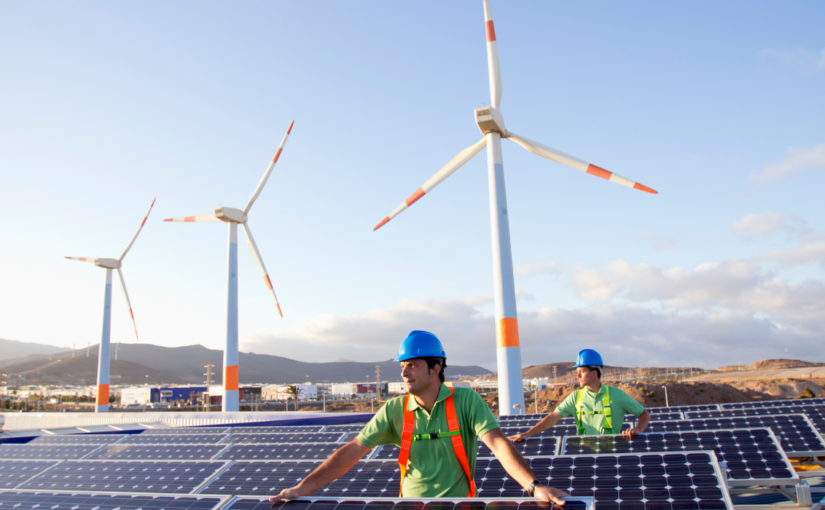back
The Importance of Energy Efficiency in Real Estate Development and Compliance
04-2023

Real estate development must prioritize energy efficiency since it has a big impact on sustainability, economic viability, and environmental impact. Buildings make up over 39% of all global CO2 emissions, making them a significant source of greenhouse gas emissions. Energy-efficient design and construction techniques are crucial to lowering energy consumption, operational costs, and environmental effect given this considerable contribution to climate change. The significance of energy efficiency in real estate development and adherence to building rules and regulations will be covered in this blog.
What is Energy Efficiency?
The efficient use of energy resources to produce the intended result, such as heating, cooling, or lighting, is referred to as energy efficiency. Buildings that are energy-efficient are made with the intention of using less energy and having a smaller negative impact on the environment. To reduce energy waste and increase efficiency, this entails optimizing a building’s orientation, insulation, ventilation, lighting, and HVAC systems.
Why is Energy Efficiency Important in Real Estate Development?
A considerable portion of the world’s energy consumption and greenhouse gas emissions are caused by real estate development. An important amount of the world’s energy use and carbon emissions are caused by the construction, use, and upkeep of buildings. Buildings that are designed and built with energy efficiency can use less energy, cost less to operate, and have a smaller environmental impact.
- Reduces Operating Costs: Buildings that use less energy require less maintenance than conventional structures. Energy-efficient structures utilize less energy for lighting, heating, and cooling, resulting in lower utility costs for both building owners and occupants. Buildings that use less energy also require fewer upkeep and repairs, which lowers operating expenses during their lifetime.
- Attracts and Retains Tenants: Tenants are drawn to energy-efficient buildings, especially those who care about the environment. The indoor climate is healthier and cozier in energy-efficient buildings, which can increase tenant satisfaction and retention. In addition to having lower running costs, energy-efficient buildings also have cheaper rent and other operational costs for tenants.
- Improves Building Value: Buildings that use less energy are more valuable on the market than conventional structures. Buildings that use less energy have higher net operating income and higher property values since they have fewer running costs. Moreover, energy-efficient buildings have a higher market appeal and resale value.
- Mitigates Environmental Impact: Buildings that use less energy are less harmful to the environment than conventional structures. Buildings with lower energy use produce fewer greenhouse gas emissions, which slow down global warming. Moreover, energy-efficient structures encourage the use of renewable energy sources and lessen demand for non-renewable energy sources.
Compliance with Building Codes and Regulations
Building safety and sustainability are guaranteed by building rules and regulations. Building codes and regulations, which are intended to promote energy-efficient building design and construction methods, must include energy norms and standards. To maintain building energy efficiency and lower energy consumption and environmental effect, compliance with energy codes and standards is crucial.
- LEED Certification: An internationally renowned green building certification scheme is Leadership in Energy and Environmental Design (LEED) accreditation. Energy efficiency, water conservation, and sustainable building techniques are all promoted by LEED certification, which offers a framework for building design, construction, and operation. Although LEED certification is optional, it offers developers and building owners a number of advantages, such as increased marketability, increased building value, and decreased running expenses.
- Energy Codes and Standards: Energy efficiency in building design and construction is encouraged by energy regulations and standards. Minimum requirements for insulation, HVAC systems, lighting, and other building components are established by energy codes and regulations. To maintain building energy efficiency and lower energy consumption and environmental effect, compliance with energy codes and standards is crucial.
- Building Energy Rating Systems: Building Energy Rating Systems (BERS) offer a standardized approach for determining a building’s energy efficiency. Building energy use is evaluated by BERS, which assigns a score based on the amount of energy used per square meter. BERS can be used to compare the energy efficiency of various buildings as well as to pinpoint areas where building design and management can be improved. In some nations, BERS is required for all structures, and building owners are required to reveal their structure’s energy rating when selling or leasing it.
Finally, it should be noted that energy efficiency is a crucial component of real estate development, with important consequences for long-term sustainability, financial viability, and environmental effect. Buildings that are designed and built with energy efficiency can use less energy, cost less to operate, and have a smaller environmental impact. To assure building energy efficiency and lower energy consumption and environmental impact, compliance with building rules and regulations, including LEED certification, energy codes and standards, and building energy rating systems, is crucial. Energy efficiency in real estate development will only grow more important as the globe continues to value sustainability and environmental stewardship.
F2H Capital Group is a debt advisory firm specializing in negotiating the best terms for your commercial real estate projects. The company offers a range of financial products and services, including fixed loans, bridge loans, and construction loans across all asset types. Please contact us for any of your financing needs.

